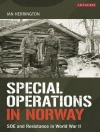Talking about the Holocaust has provided an international language for ethics, victimization, political claims, and constructions of collective identity. As part of a worldwide vocabulary, that language helps set the tenor of the era of globalization. This volume addresses manifestations of Holocaust-engendered global discourse by critically examining their function and inherent dilemmas, and the ways in which Holocaust-related matters still instigate public debate and academic deliberation. It contends that the contradiction between the totalizing logic of globalization and the assumed uniqueness of the Holocaust generates continued intellectual and practical discontent.
Spis treści
Preface
Amos Goldberg and Haim Hazan
SECTION I: INTRODUCTIONS
Chapter 1. Ethics, Identity and Anti-Fundamental Fundamentalism: Holocaust Memory in the Global Age (a cultural-political introduction)
Amos Goldberg
Chapter 2. Globalized Holocaust: An Anthropological Oxymoron (an anthropological- theoretical introduction)
Haim Hazan
SECTION II: HOW GLOBAL IS HOLOCAUST MEMORY?
Chapter 3. The Holocaust isn’t–and isn’t Likely to Become–a Global Memory
Peter Novick
Chapter 4. The Holocaust as a Symbolic Manual: The French Revolution, the Holocaust, and Global Memories
Alon Confino
Chapter 5. “After Auschwitz”:A Constitutive Turning Point in Moral Philosophy
Ronit Peleg
Chapter 6. Cosmopolitan Body: the Holocaust as Route to the Globally Human
Nigel Rapport
SECTION III: MEMORY, TRAUMA AND TESTIMONY: THE HOLOCAUST AND NON-WESTERN MEMORIES
Chapter 7. Holocaust Memories and Cosmopolitan Practices: Humanitarian Witnessing between Emergencies and the Catastrophe
Michal Givoni
Chapter 8. The Global Semiotics of Trauma and Testimony: A Comparative Study of Jewish-Israeli, Canadian-Cambodian and Cambodian Genocidal Descendant Legacies
Carol Kidron
Chapter 9. Genres of Identification: Holocaust Testimony and Postcolonial Witness
Louise Bethlehem
Chapter 10. Commemorating the Twentieth Century: The Holocaust and Nonviolent Struggle in Global Discourse
Tamar Katriel
Chapter 11. Rethinking the Politics of the Past: Multidirectional Memory in the Archives of Implication
Michael Rothberg
SECTION IV: THE POETICS OF THE GLOBAL EVENT: A CRITICAL VIEW
Chapter 12. Pain & Pleasure in Poetic Representations of the Holocaust
Rina Dudai
Chapter 13. Auschwitz: George Tabori’s Short Joke
Shulamith Lev-Aladgem
Chapter 14. The Law of Dispersion: a Reading of W.G. Sebald’s Prose
Jacob Hessing
Chapter 15. Holocaust Envy: Globalization of the Holocaust in Israeli Discourse
Batya Shimony
SECTION V: CLOSURE
Chapter 16. The Kristallnacht as Symbolic Turning Point in Nazi Rule
Emanuel Marx
Chapter 17. A Personal Postscript
Sidra De Koven Ezrahi
List of Contributors
Index
O autorze
Haim Hazan is Professor of Sociology and Social Anthropology at Tel-Aviv University, where he is also co-director of the Minerva Center for the Interdisciplinary Study of the End of Life. He is the author of several books, including The Limbo People; Old Age: Constructions and Deconstructions; Managing Change in Old Age; A Paradoxical Community; From First Principles; Simulated Dreams: Israeli Youth and Virtual Zionism, and Serendipity in Anthropological Research: The Nomadic Turn (edited with Esther Herzog).












